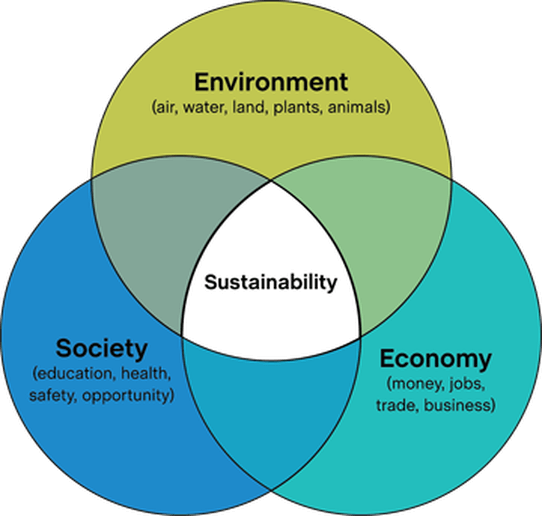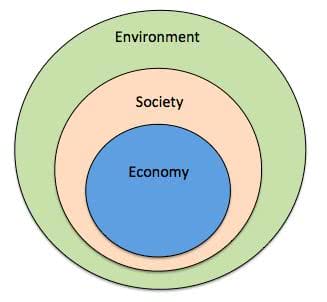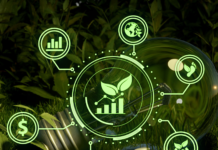
Neoclassical economic theory, which has come to dominate public policymaking, has also oversimplified the world greatly. As a prime example, neoclassical theory reduces the factors of production to labor and capital. If you remember from Economics 101, it used to be land, labor and capital.
Indeed the classical — as opposed to neoclassical — economists as far back as Adam Smith considered land to be perhaps the most important factor of production. Land was something far too important to assume away with elegant equations. As we move through the 21st century, it will become important for economic theory to go back to its roots to rediscover the value of land, aka natural capital and ecosystem services.
This is not a trivial point. Neoclassical economic theory now unwittingly informs our understanding of the world. Shrouded in complex math equations, economics has become a sort of black box that unfortunately does a poor job of guiding sustainable policy.
Hopefully that will start to change as more interdisciplinary and comprehensive approaches to public policy are clearly becoming necessary. Land and the physical world do in fact matter to theory.
Unfortunately, most economists haven’t kept up with the times. Land, or more generally natural capital, figured prominently in the thinking of classical economists such as Adam Smith and David Ricardo. However, starting in the 19th century, land was de-emphasized in favor of labor and capital as areas of primary focus. Even today, mainstream economic training does not require study of the properties of natural capital and ecosystem services.
Perhaps ironically, the most important environmental issue the world will face in the future is not the availability of nonrenewable natural resources. Rather it is more likely to be the environmental sink. That is, the ability of the earth to absorb waste and regenerate renewable resources.
Sabine O’Hara, Dean and Director of Landgrant Programs for the College of Agriculture, Urban Sustainability and Environmental Sciences at the University of the District of Columbia, argues that production functions, which most government economists live and die by, are largely irrelevant outside societal, physical and environmental contexts.
Too often the economy is interpreted as its own world, which overlaps only periodically with society and the environment, as depicted in Figure 1.
Figure 1. Partial Sustainability

In fact, the economic system is driven by societal choices and the ability of the environment to provide, as indicated in Figure 2. The economy is nested within natural and man-made systems. What becomes clear is that economic theory currently leaves a lot of stuff out of the picture.
One only needs to point out that many economic-like activities occur outside of the purely economic sector. These include volunteer work and services families provide for themselves, such as child care. Not everything we do shows up as GDP, yet non-market activity is utterly invisible to current economic models.
Figure 2. Sustainability

At the same time, the things we tend to think of as free — viable ecosystems and functioning environmental sinks — are the essential drivers for a functioning economy and society. While much emphasis has been placed on finite nonrenewable resources, recent events such as the shale oil and gas revolution suggest that renewable resources may be what we should be worried about. Renewable resources rely on two things. First, they cannot be overharvested. Second, renewable resources depend on the environmental sink to process waste. Economists call this second factor externalities — and mostly assume them away (for simplicity).
The implications of this alternative perspective on economic theory can be quite far-reaching. The world has witnessed political situations that start as an environmental effect, such as the Syrian drought, but then escalate into civil war prompted by the lack of food, loss of livelihoods and poor governance.
Environmental issues are likely to drive future social upheaval as well. As such, early warning indicators for ecosystem services will be more crucial to understand than ever before. Of course, early warning indicators are of little use if no one heeds them, and so far economists have been of little help.
In the absence of critical scrutiny from economists, neoclassical economic theory continues to take the human race down an unsustainable path by giving short shrift to externalities. Full life cycle accounting that measures the real costs of excessive harvesting, and the discharge of unrecycled waste back into the environment, remains nothing more than an interesting debate. It will be up to society’s stakeholders to put the economists straight.
About the author: Thomas Tunstall, Ph.D., is the Senior Research Director at The University of Texas at San Antonio Institute for Economic Development. He was the principal investigator for numerous economic and community development studies. He has published peer-reviewed articles on shale oil and gas, and has written op-ed articles on the topic for The Wall Street Journal. Dr. Tunstall holds a Ph.D. in political economy and an M.B.A. from The University of Texas at Dallas, as well as a B.B.A. from The University of Texas at Austin.














